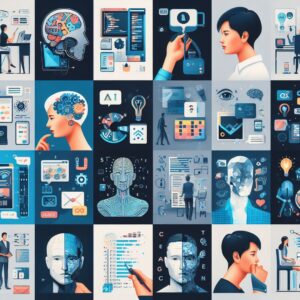Pirate software, also known as unlicensed or counterfeit software, has been a persistent issue in the software industry for decades. Despite the efforts of software companies and law enforcement agencies, pirate software remains widely available and is used by millions of people around the world.
The use of pirate software has a number of negative consequences, including:
- Financial losses for software companies: The sale of pirate software deprives software companies of revenue that they would otherwise use to invest in research and development, marketing, and customer support.
- Security risks: Pirate software is often bundled with malware, which can infect computers and steal personal information.
- Legal issues: Using pirate software is illegal and can result in fines or even imprisonment.
In recent years, there has been a growing trend of using pirate software to develop video games. This is because pirate software is often cheaper and more accessible than licensed software. Additionally, pirate software can provide access to features that are not available in licensed software.
The Rise of Pirate Software Game Development
There are a number of factors that have contributed to the rise of pirate software game development. These include:
- The increasing cost of game development: The cost of developing a video game has increased significantly in recent years. This makes it more difficult for small and independent studios to compete with larger companies.
- The availability of pirate software: Pirate software is widely available online and is often easy to find and download.
- The lack of enforcement of copyright laws: In many countries, there is a lack of enforcement of copyright laws. This makes it easier for people to use pirate software without fear of legal consequences.
The Impact of Pirate Software Game Development
The use of pirate software has a number of negative consequences for the video game industry. These include:
- Financial losses for game developers: The sale of pirate games deprives game developers of revenue that they would otherwise use to invest in research and development, marketing, and customer support.
- Reduced quality of games: Pirate games are often of poor quality and may contain bugs or glitches.
- Damage to the reputation of the video game industry: The use of pirate software is a sign of disrespect for the work of game developers. This can damage the reputation of the video game industry as a whole.
What Can Be Done to Combat Pirate Software Game Development?
There are a number of things that can be done to combat pirate software game development. These include:
- Increasing awareness of the risks of using pirate software: Many people are not aware of the risks of using pirate software. It is important to educate people about the risks of using pirate software and to encourage them to only use licensed software.
- Enforcing copyright laws: Copyright laws should be enforced more effectively to deter people from using pirate software.
- Making licensed software more affordable: Licensed software should be made more affordable to make it more attractive to consumers.
Table: Common Pirate Software Tools Used in Game Development
| Tool | Description |
|---|---|
| Unity | A popular game engine that can be used to create 2D and 3D games |
| Unreal Engine | Another popular game engine that can be used to create 2D and 3D games |
| Blender | A 3D modeling and animation software that can be used to create assets for games |
| GIMP | A free and open-source image editing software that can be used to create game textures |
| Audacity | A free and open-source audio editing software that can be used to create game sound effects and music |
Which software is used for game development?
A wide range of software is used for game development, from specialized game engines to more general-purpose tools. The specific software that is used will depend on the type of game being developed, the platform it is being developed for, and the developer’s preferences.
Some of the most popular game engines include:
- Unity
- Unreal Engine
- Godot
- CryEngine
- GameMaker Studio 2
These engines provide a wide range of features that can be used to create games, including:
- 2D and 3D graphics
- Physics
- Sound
- Artificial intelligence
In addition to game engines, a number of other software tools are commonly used in game development, such as:
- 3D modeling software: This software is used to create the 3D models that are used in games. Examples of 3D modeling software include 3ds Max, Maya, and Blender.
- 2D graphics software: This software is used to create the 2D graphics that are used in games. Examples of 2D graphics software include Adobe Photoshop, Illustrator, and GIMP.
- Audio editing software: This software is used to create the sound effects and music that are used in games. Examples of audio editing software include Adobe Audition, Audacity, and Reaper.
What is the most popular game development platform?
The most popular game development platform is Unity. Unity is a cross-platform game engine that can be used to create games for a variety of platforms, including PC, consoles, mobile devices, and web browsers. Unity is a popular choice for indie developers and small studios because it is relatively easy to learn and use.
What is PC game development?
PC game development is the process of creating games for personal computers. PC games are typically more powerful and graphically demanding than console or mobile games. PC game development can be more challenging than other types of game development because of the wide variety of PC hardware configurations.
How can I do game development?
There are a number of ways to get into game development. Here are a few tips:
- Learn the basics of game programming: There are a number of resources available online and in libraries that can teach you the basics of game programming.
- Start with a small project: Don’t try to create a AAA game your first time out. Start with a small project that you can complete in a few weeks or months.
- Join the game development community: There are a number of online forums and communities where you can connect with other game developers and get help with your projects.
- Be patient: Game development is a challenging but rewarding hobby. Don’t get discouraged if you don’t succeed immediately. Just keep learning and practicing, and you’ll eventually achieve your goals.
Conclusion
The use of pirate software is a serious problem that has a number of negative consequences for the software industry. It is important to take steps to combat pirate software game development in order to protect the rights of software developers and to ensure the continued success of the video game industry.




